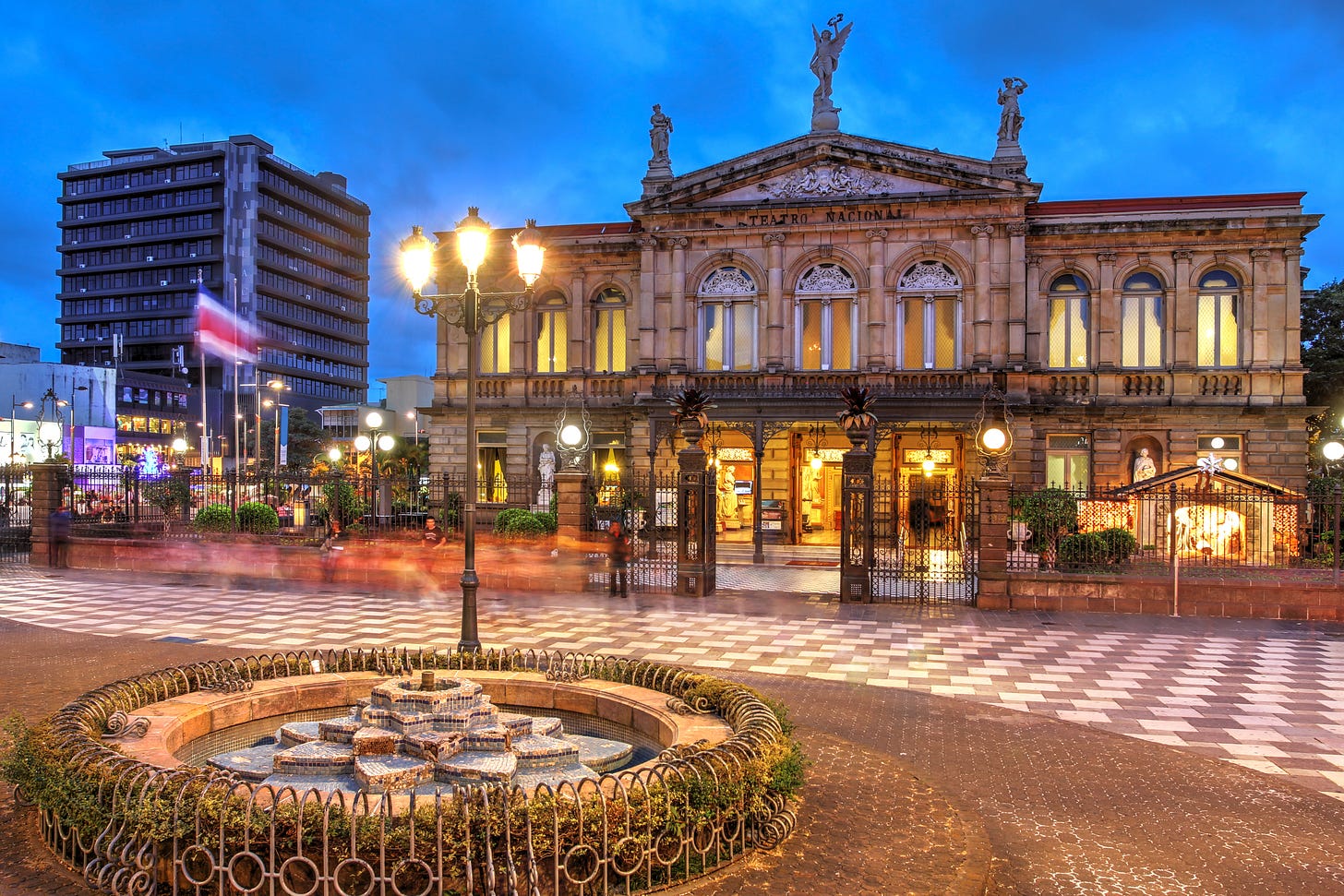A Garden Without a Guard
Central America’s Peaceful Outlier Facing Its First Real Stress Test.
Status: Living File (v1.0) – Last Updated: August 15, 2025
Risk Tier: Tier I – Peaceful, Democratic, Early Strain Visible, but not Dysfunctional
Use Case: Residency Base, Lifestyle Hedge, Latin America’s “Safety Zone”
A Garden Without a Guard: A Narrative Interlude on Costa Rica
Costa Rica is Central America’s paradox.
A nation that abolished its army in 1948, wrote peace into its brand, and built global fame on Pura Vida. It’s the retirement dream, the eco-brochure, the “soft landing” for digital nomads and disillusioned Americans. In a neighborhood often defined by coups, crackdowns, and crime, Costa Rica offers elections that count, police that mostly protect, and a judiciary that works more often than it doesn’t.
But the postcard is aging.
Current times have exposed strain lines: record-high homicide rates driven by cartel competition; the government’s decision to build a massive El Salvador–style “mega-prison” to prove it’s serious on crime; indigenous leaders petitioning international courts for basic safety; beaches reporting some of the highest microplastic levels in the world; and UN warnings of a surge in social media–driven hate speech. The bureaucracy still moves at “Tico time” — charming when it’s a hammock day, maddening when it’s a permit or a court case.
Costa Rica is a functioning democracy and high-trust society by regional standards; a refuge worth considering. But the gap between the Pura Vida myth and the reality on the ground is widening.


